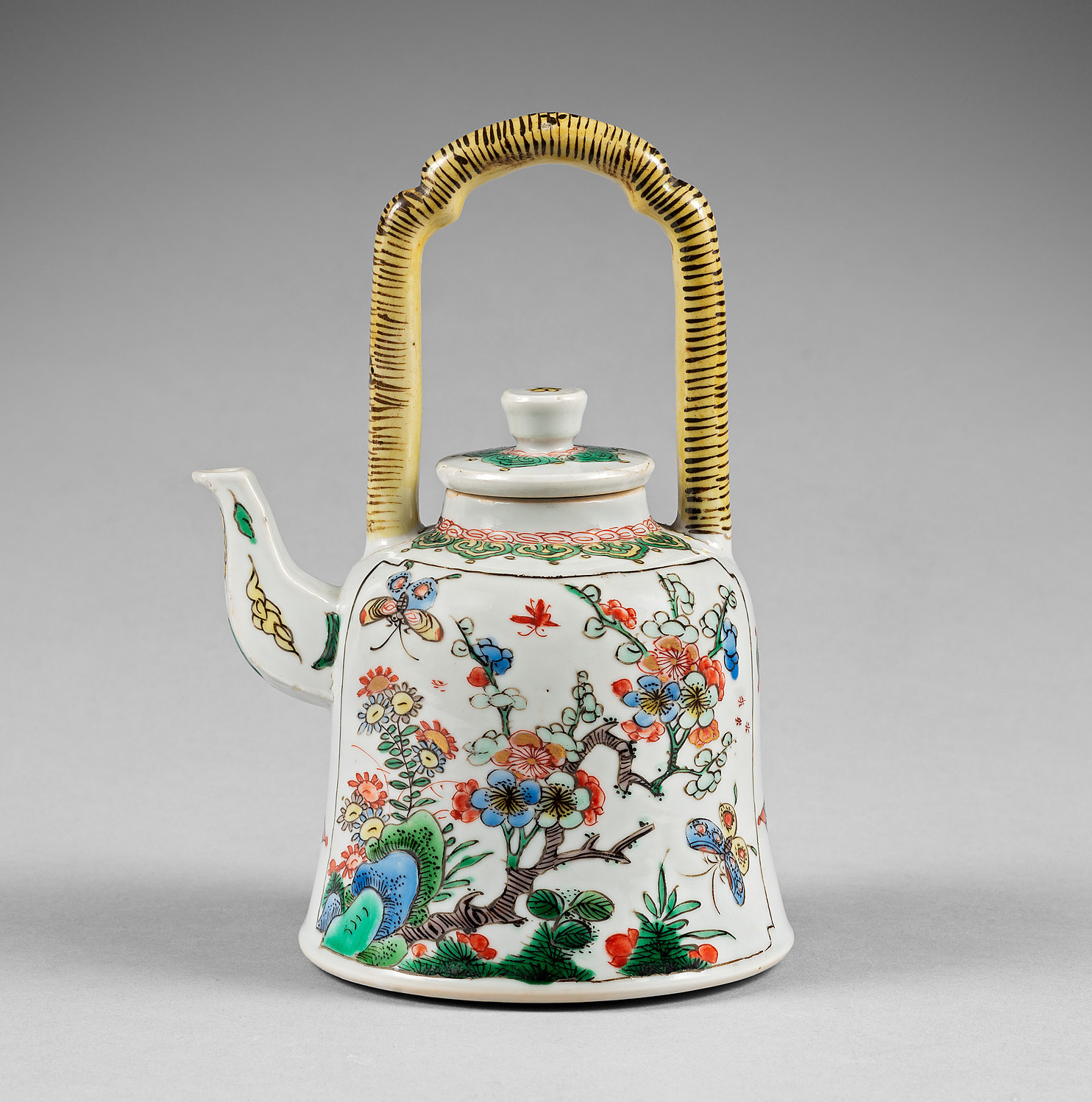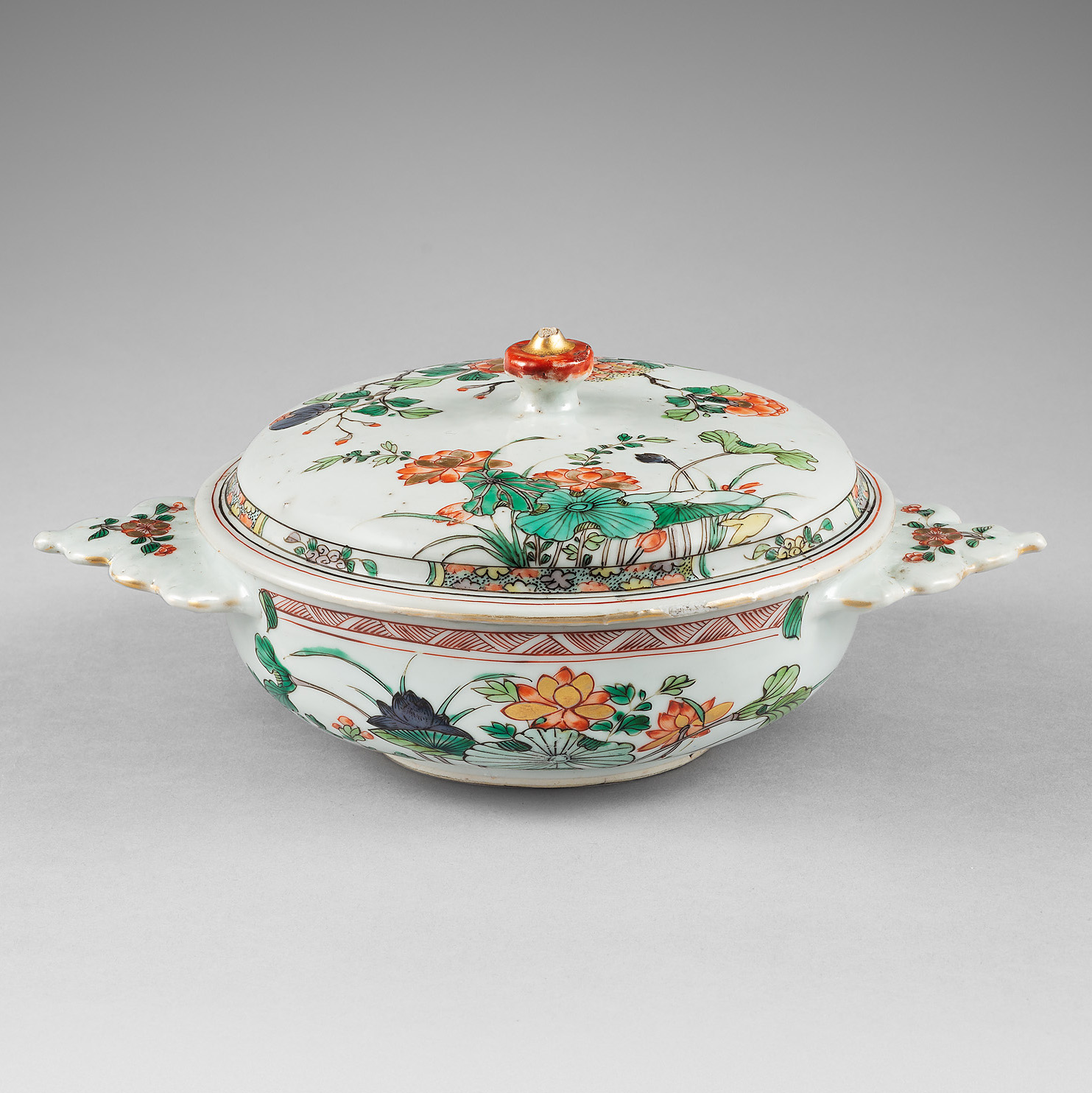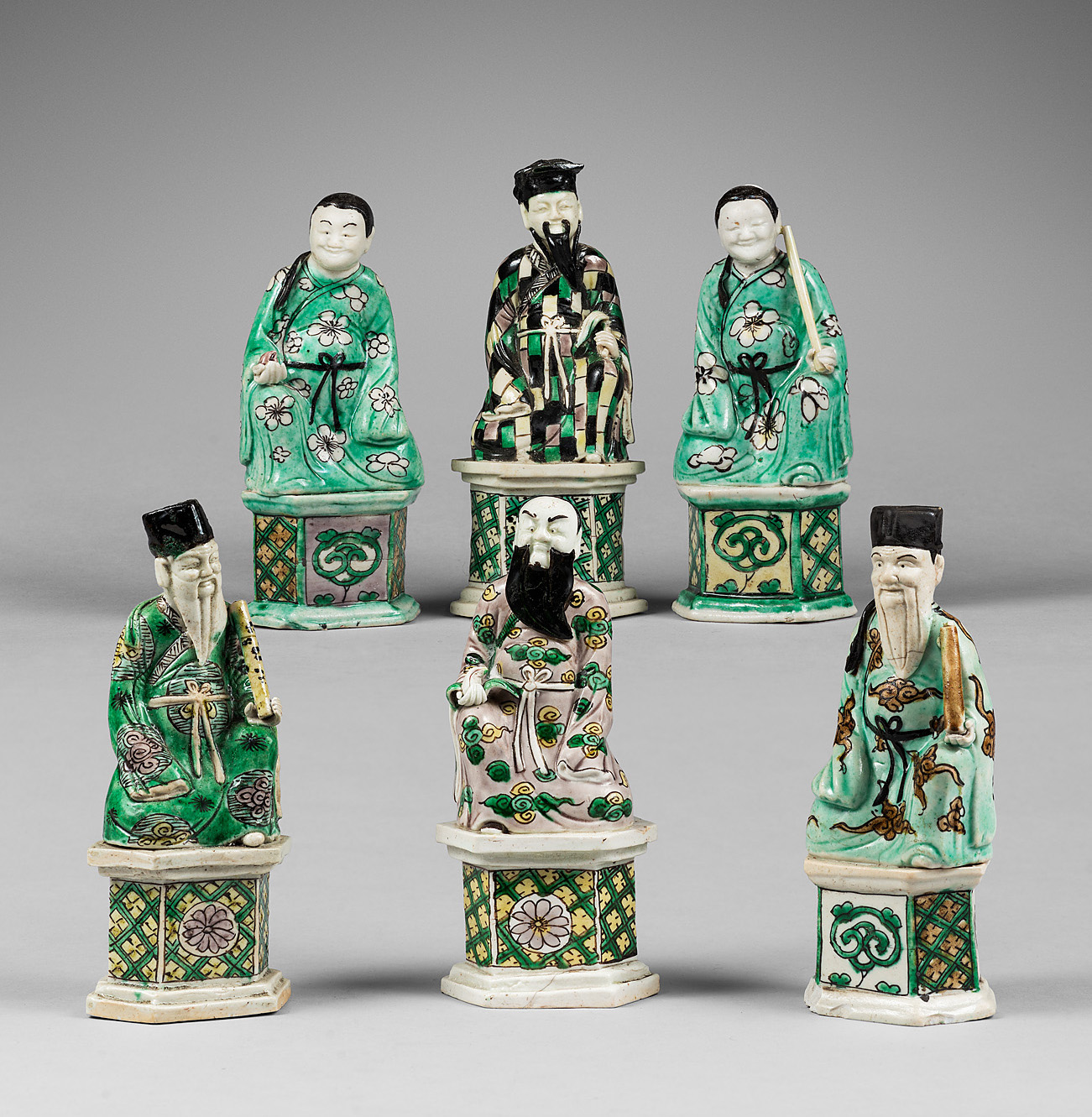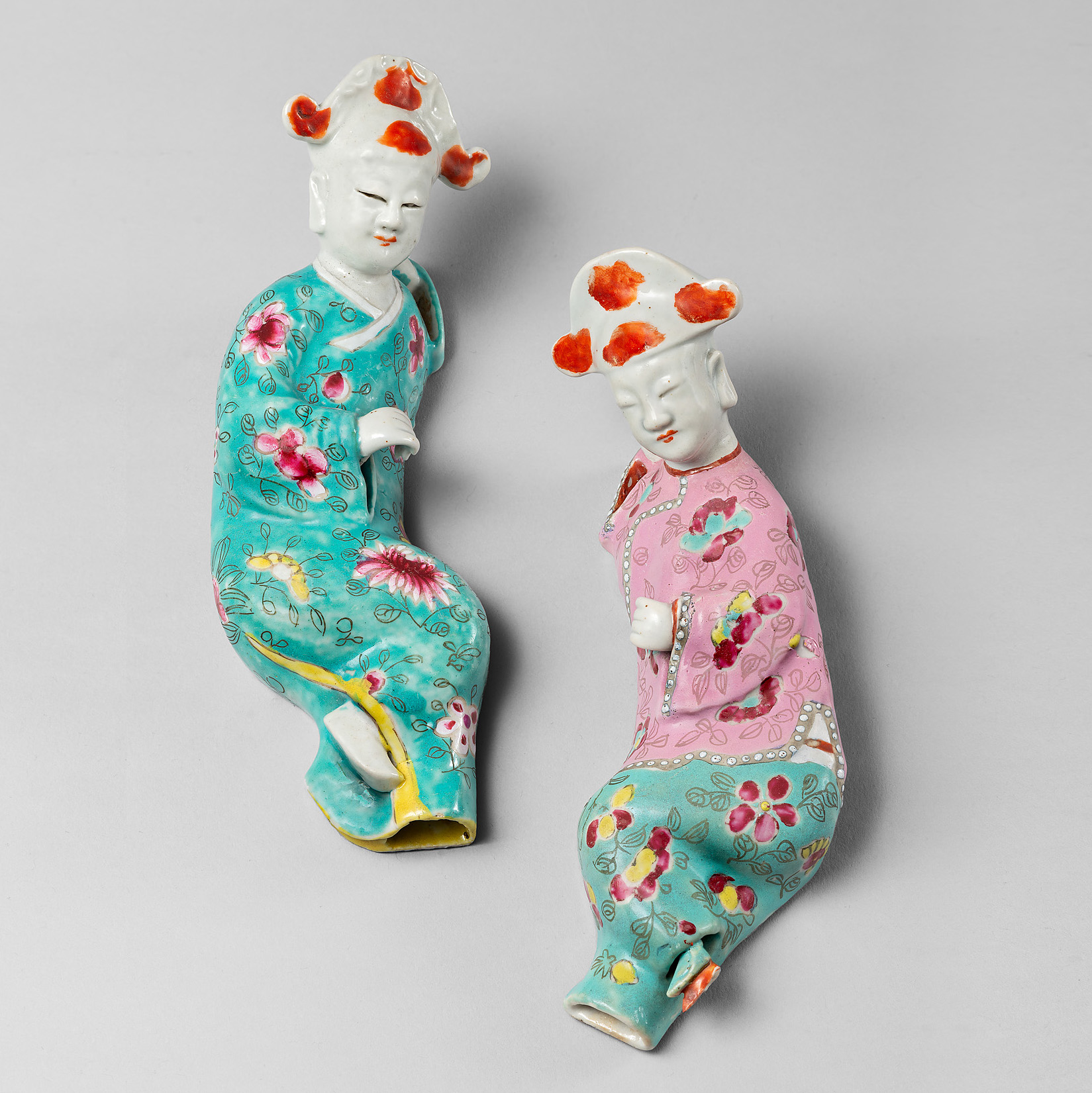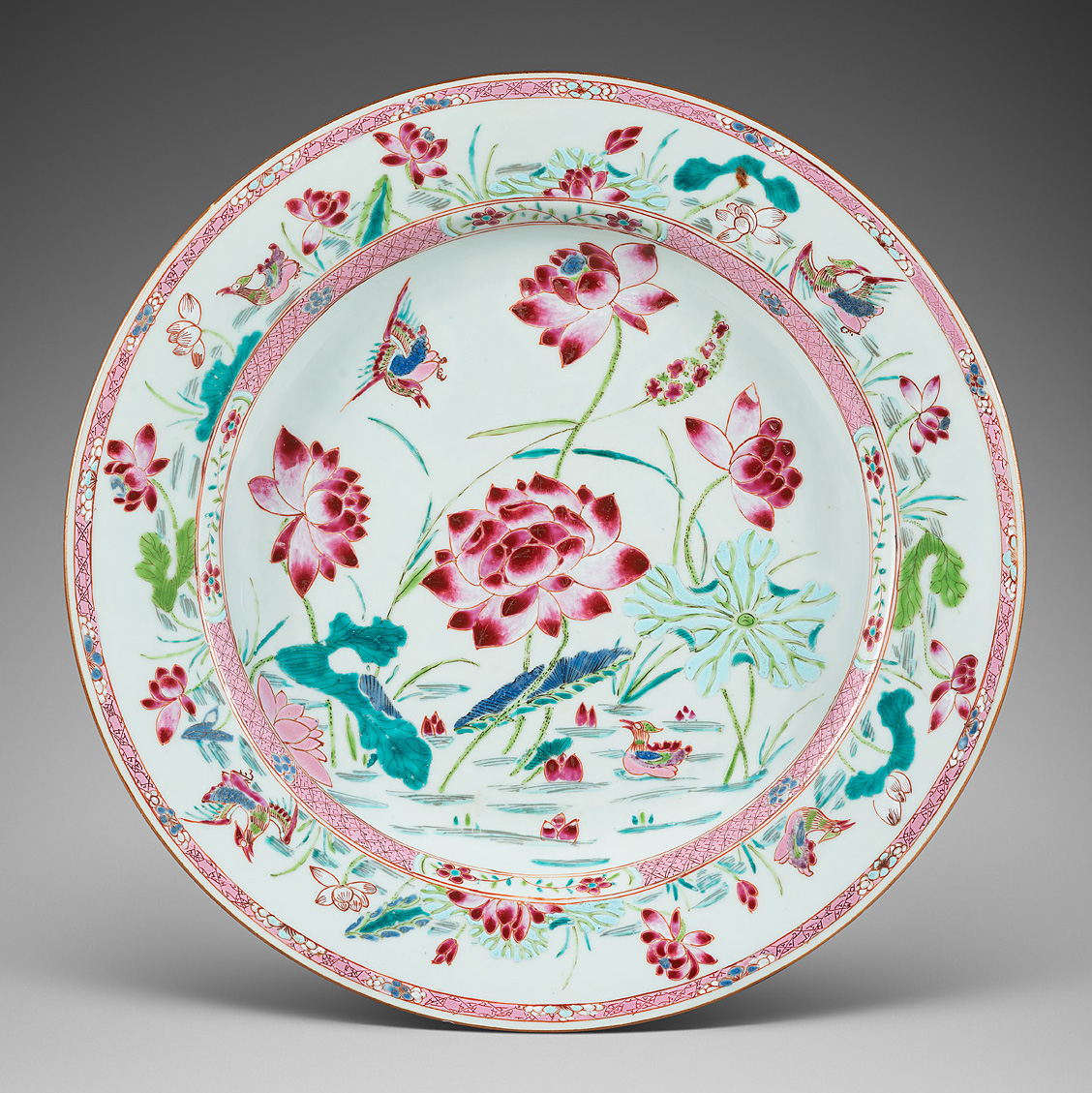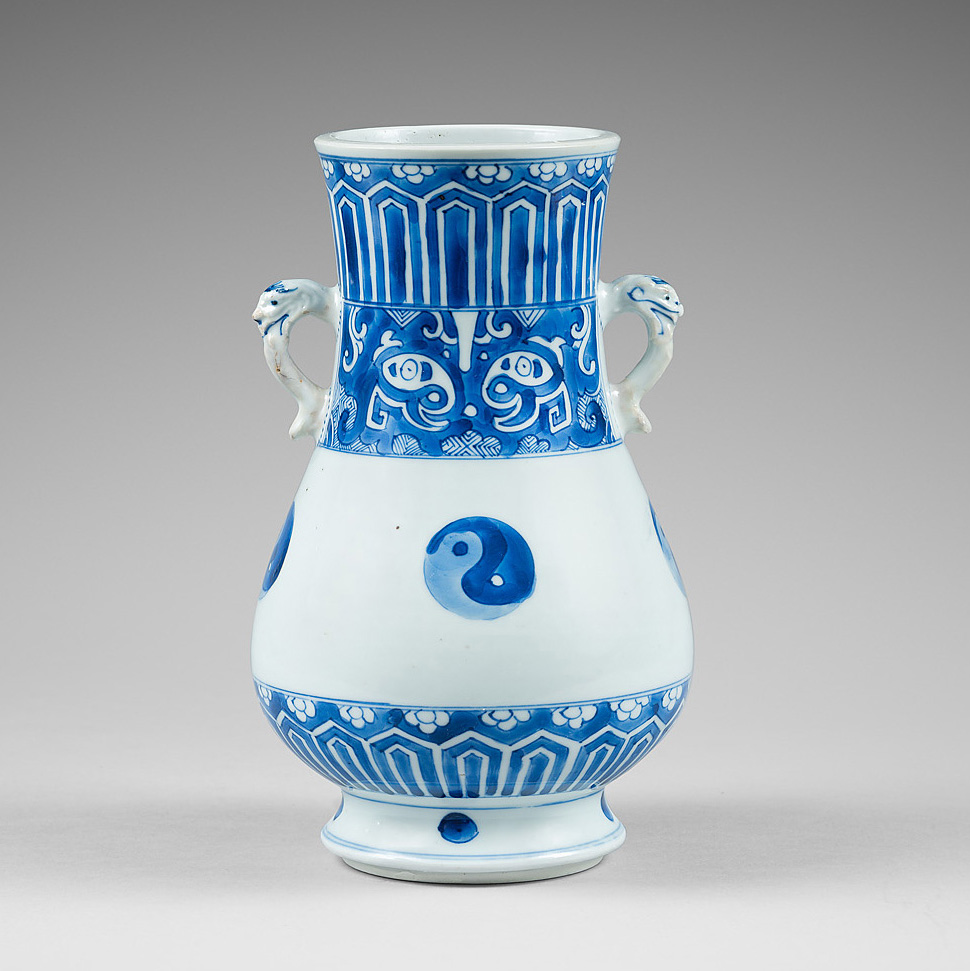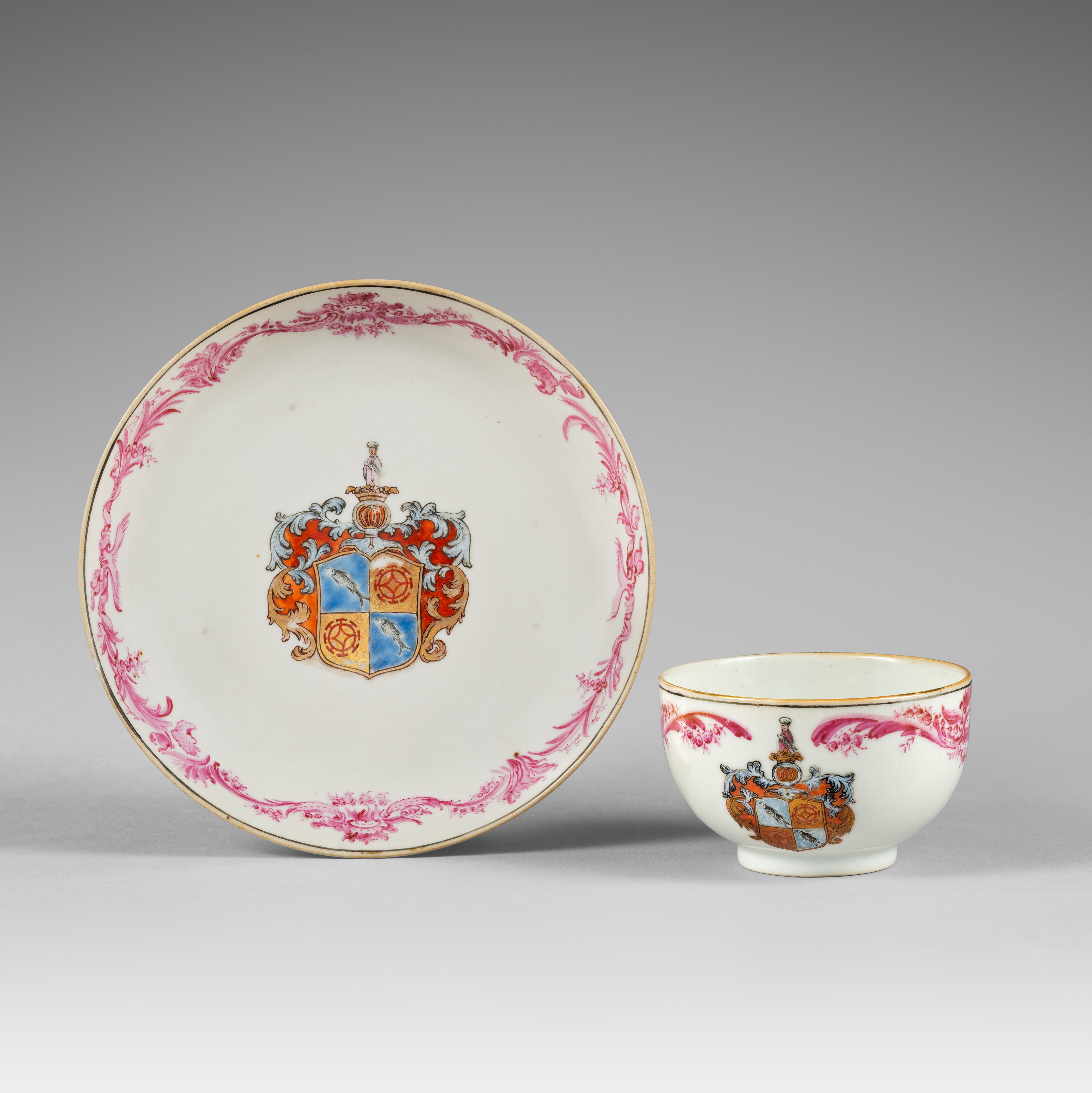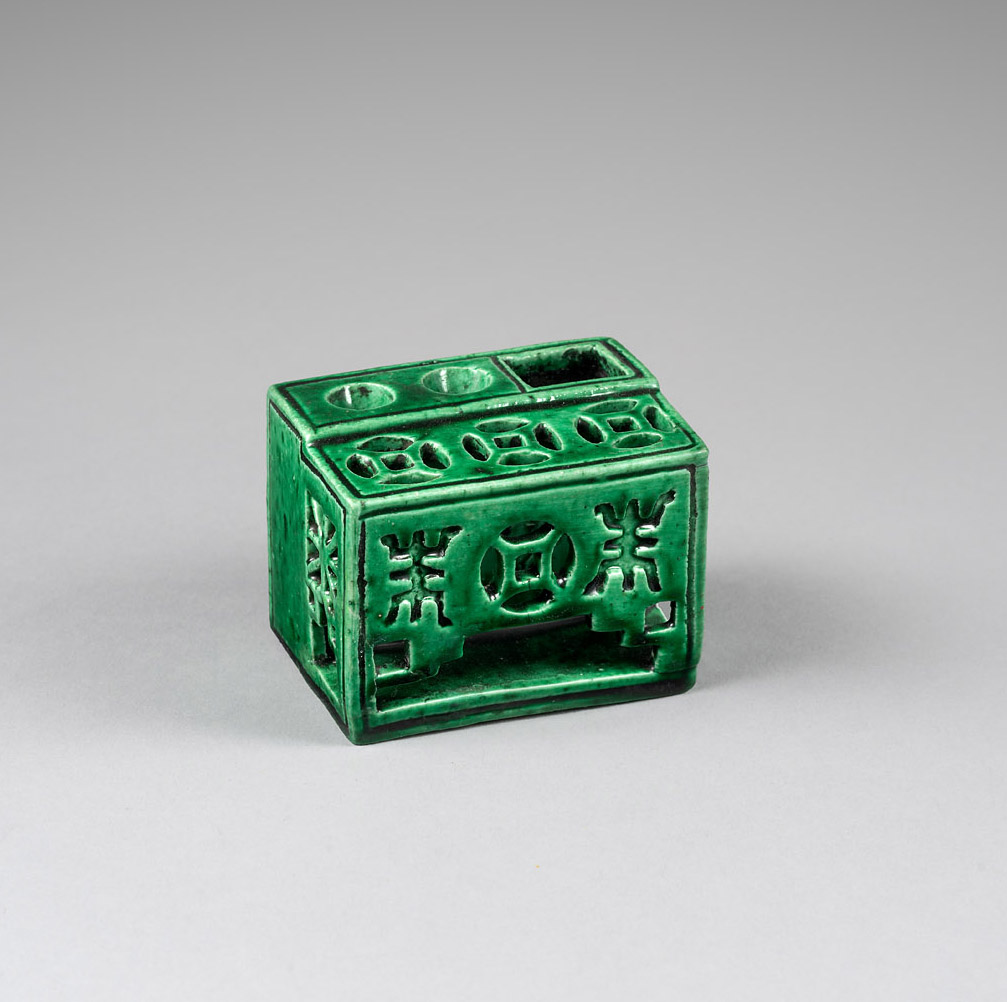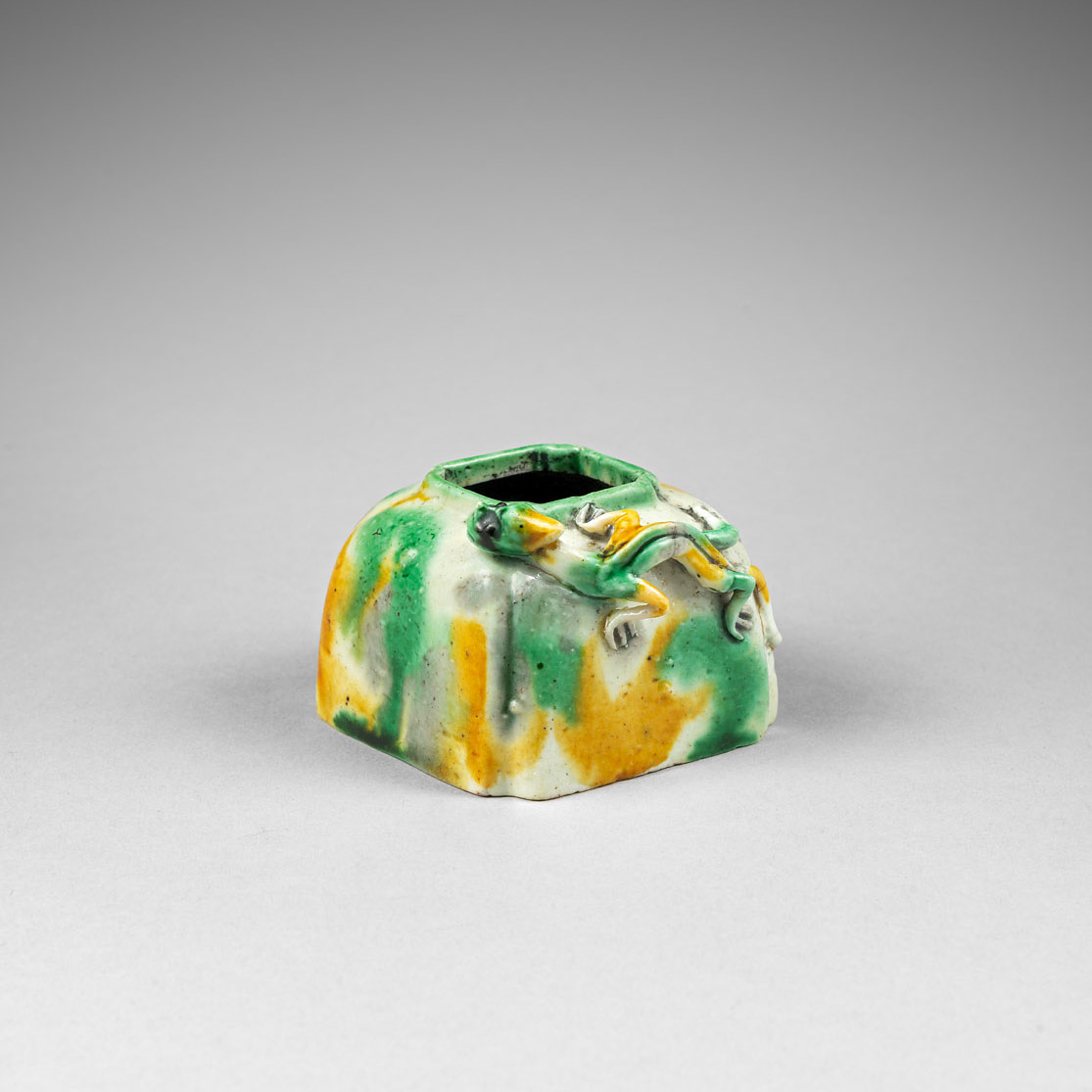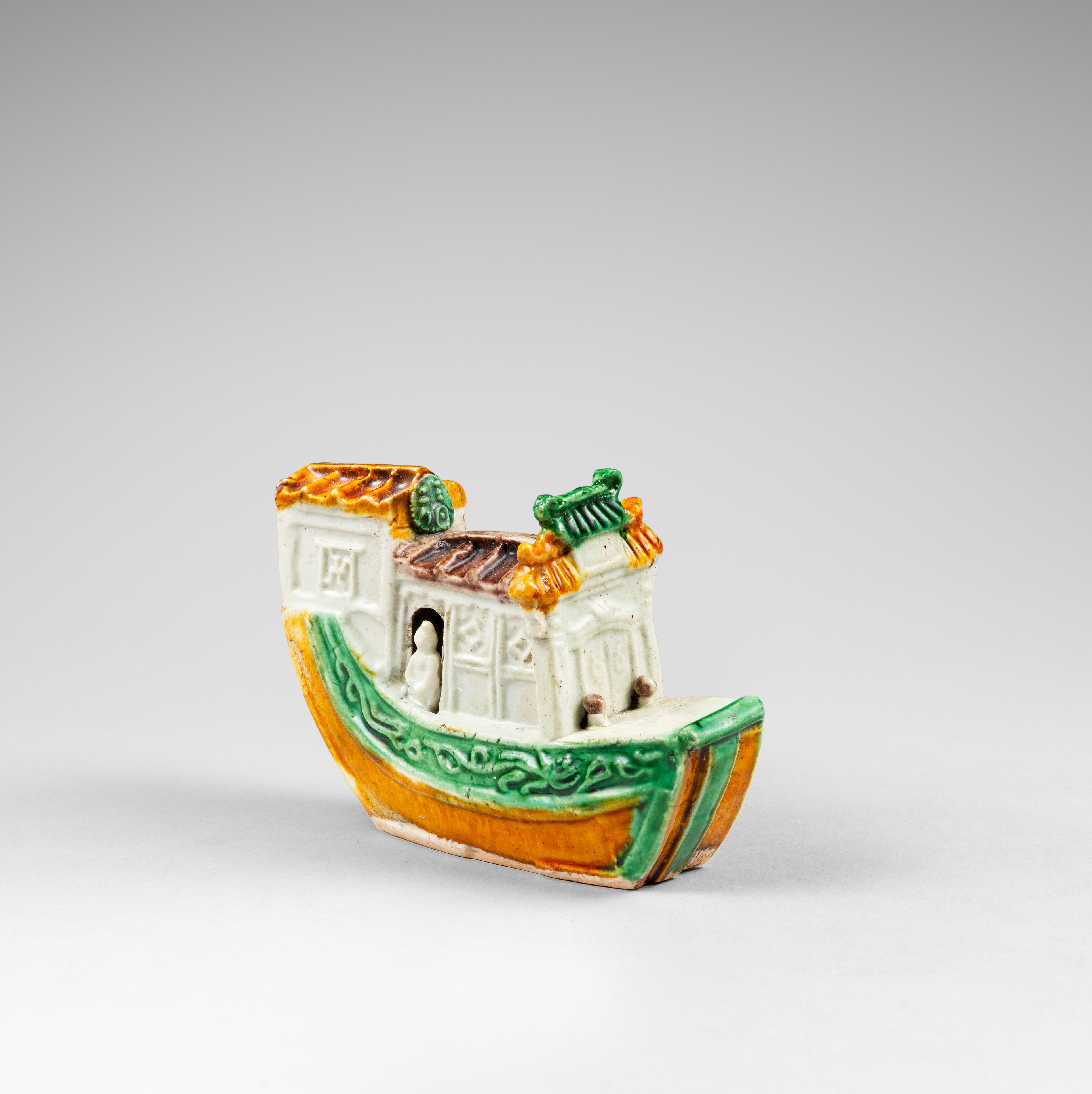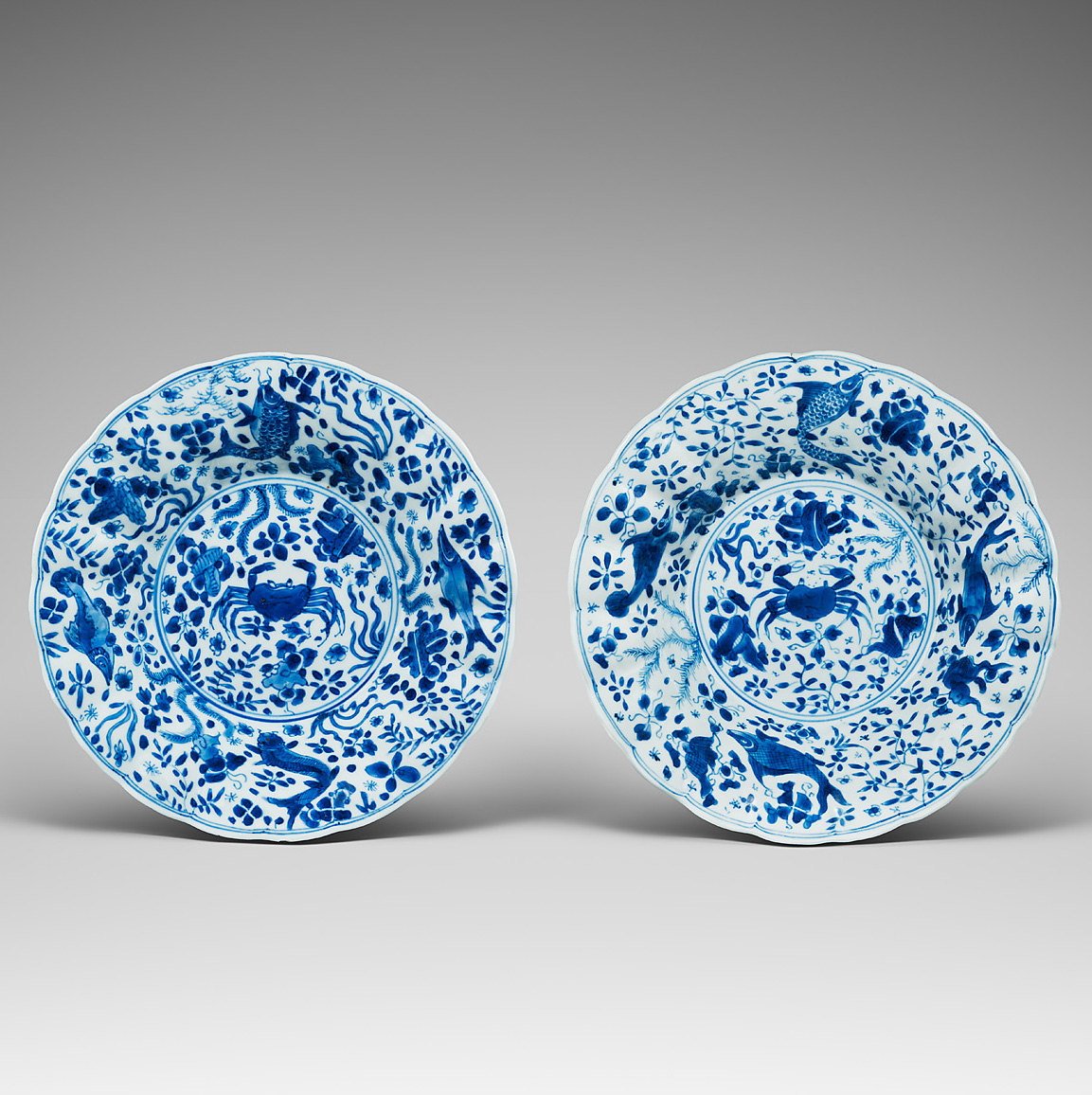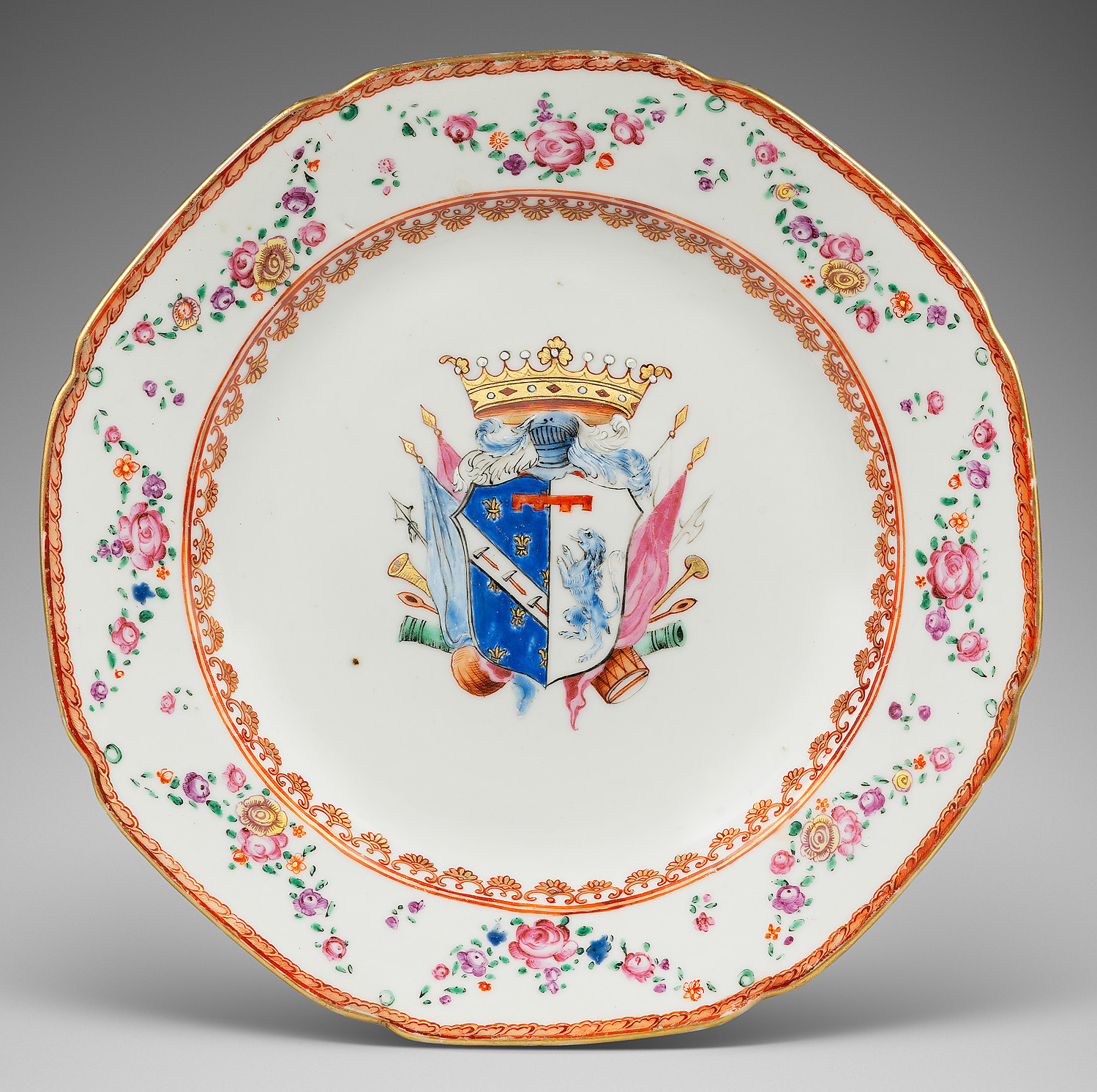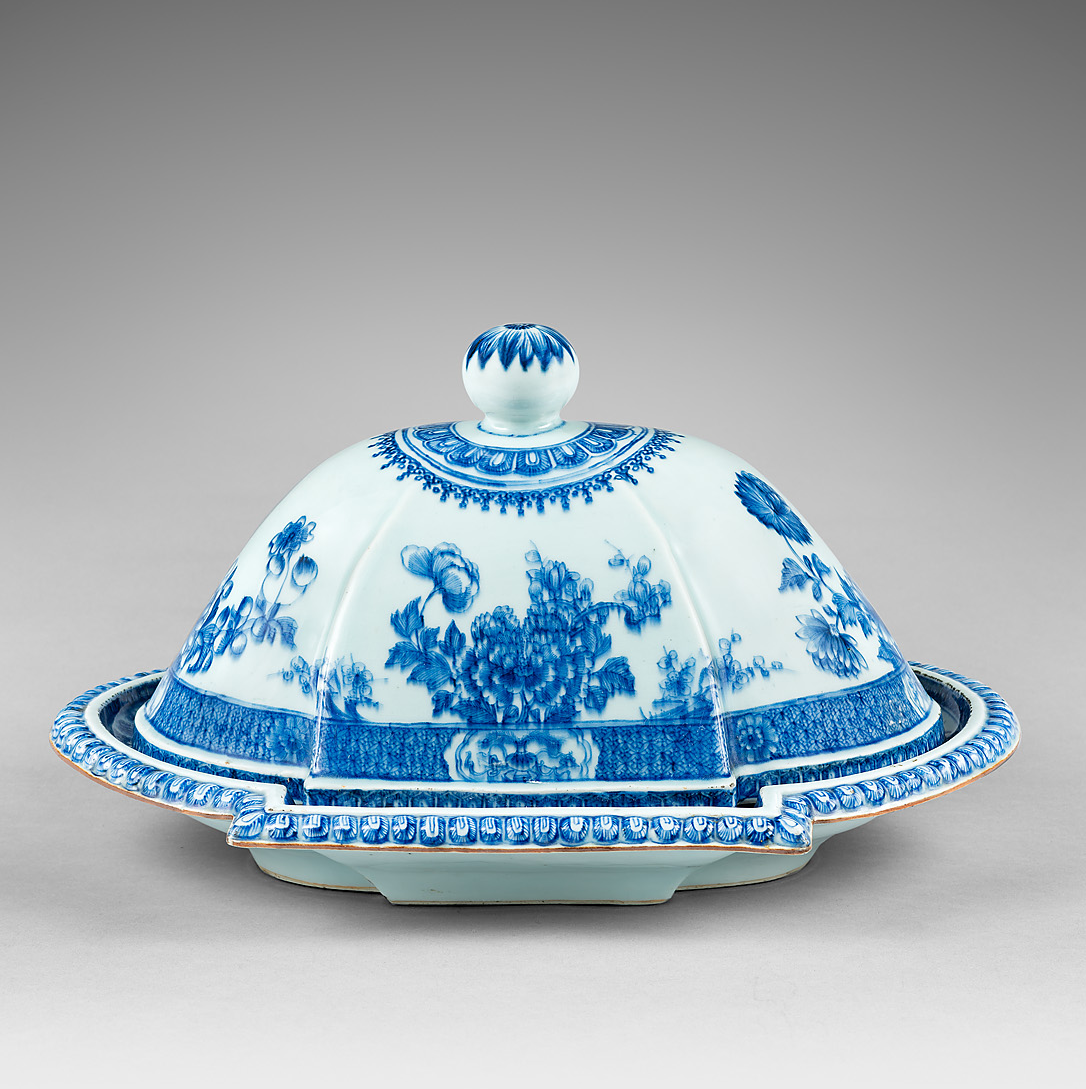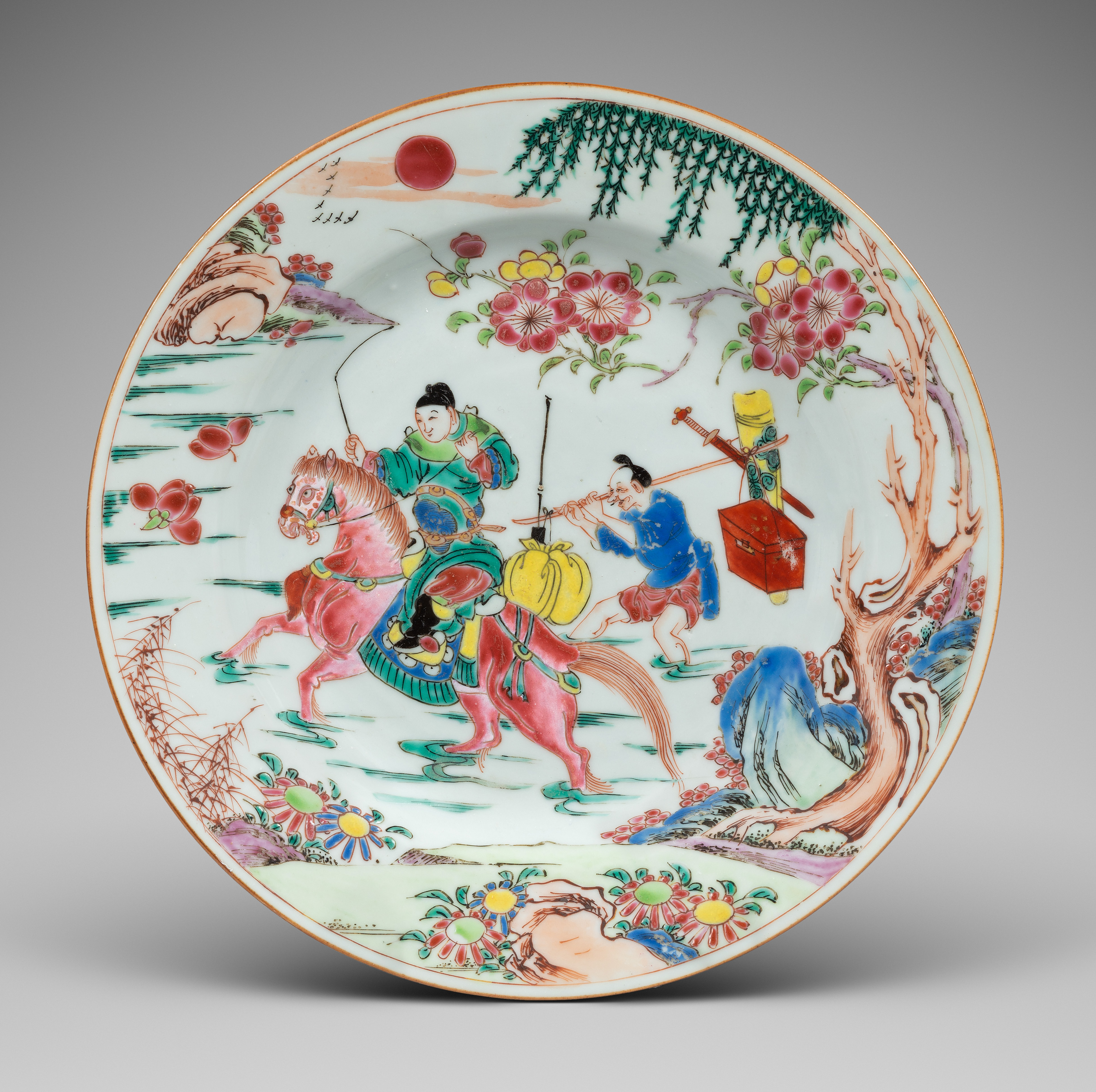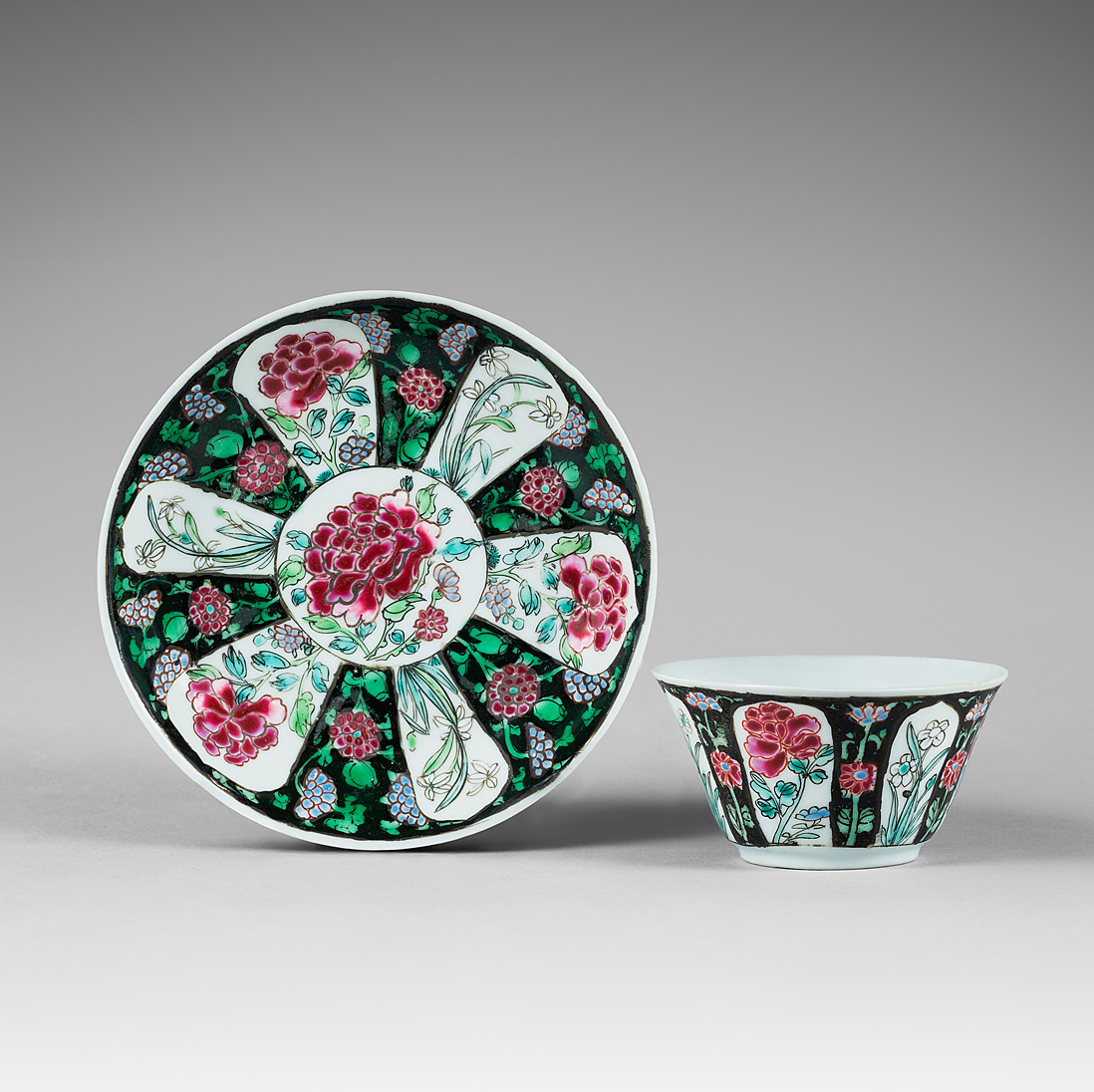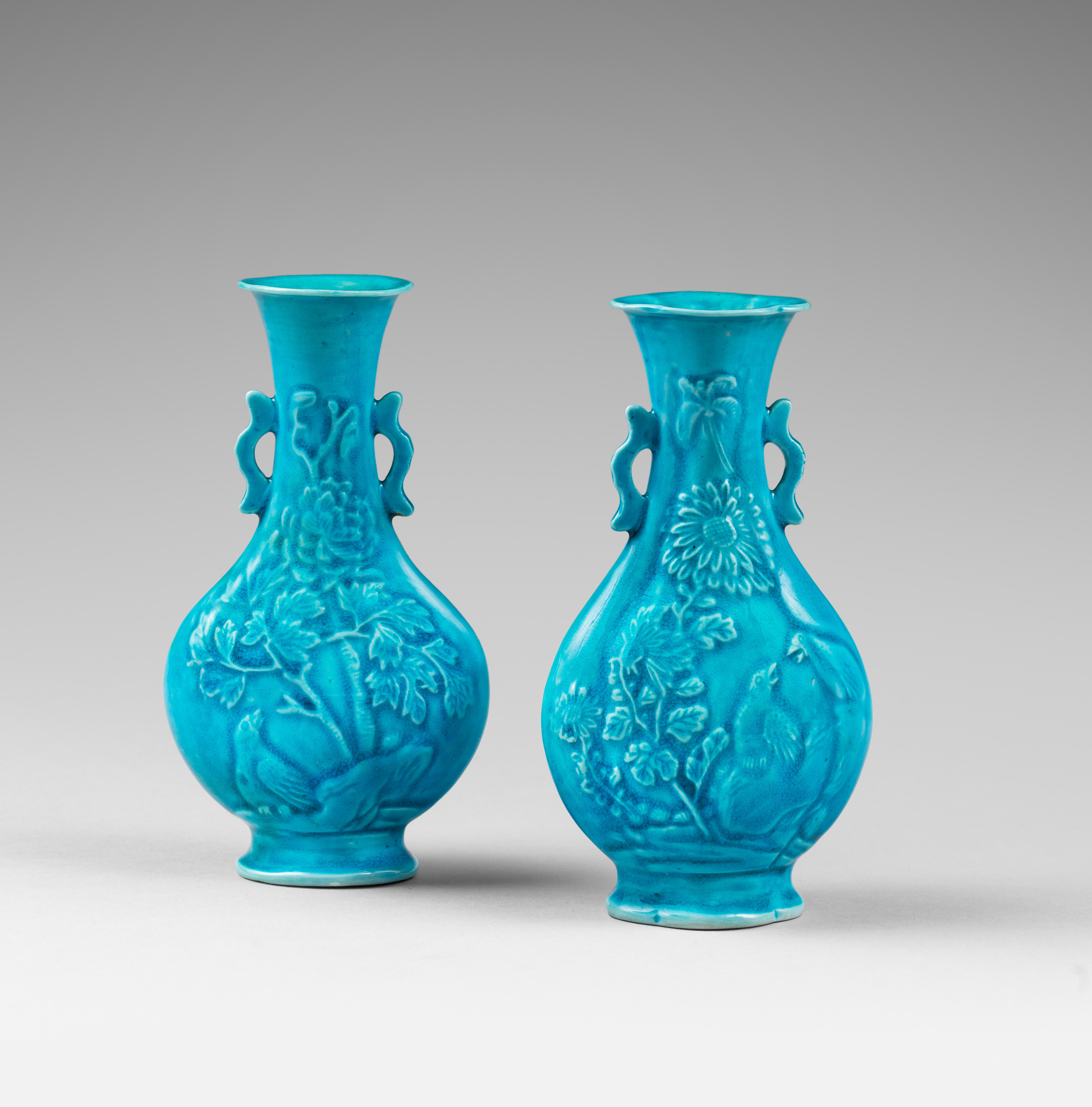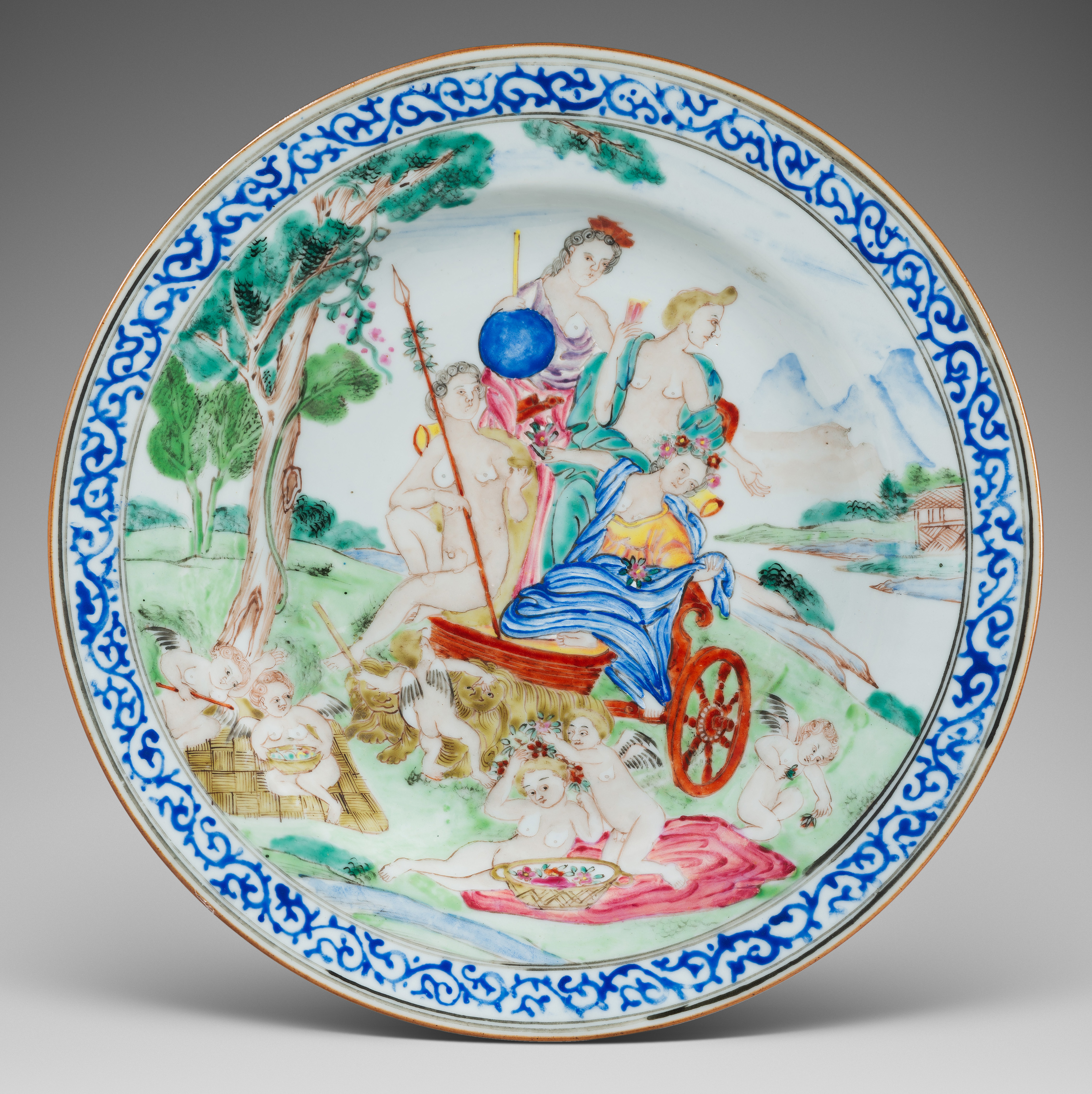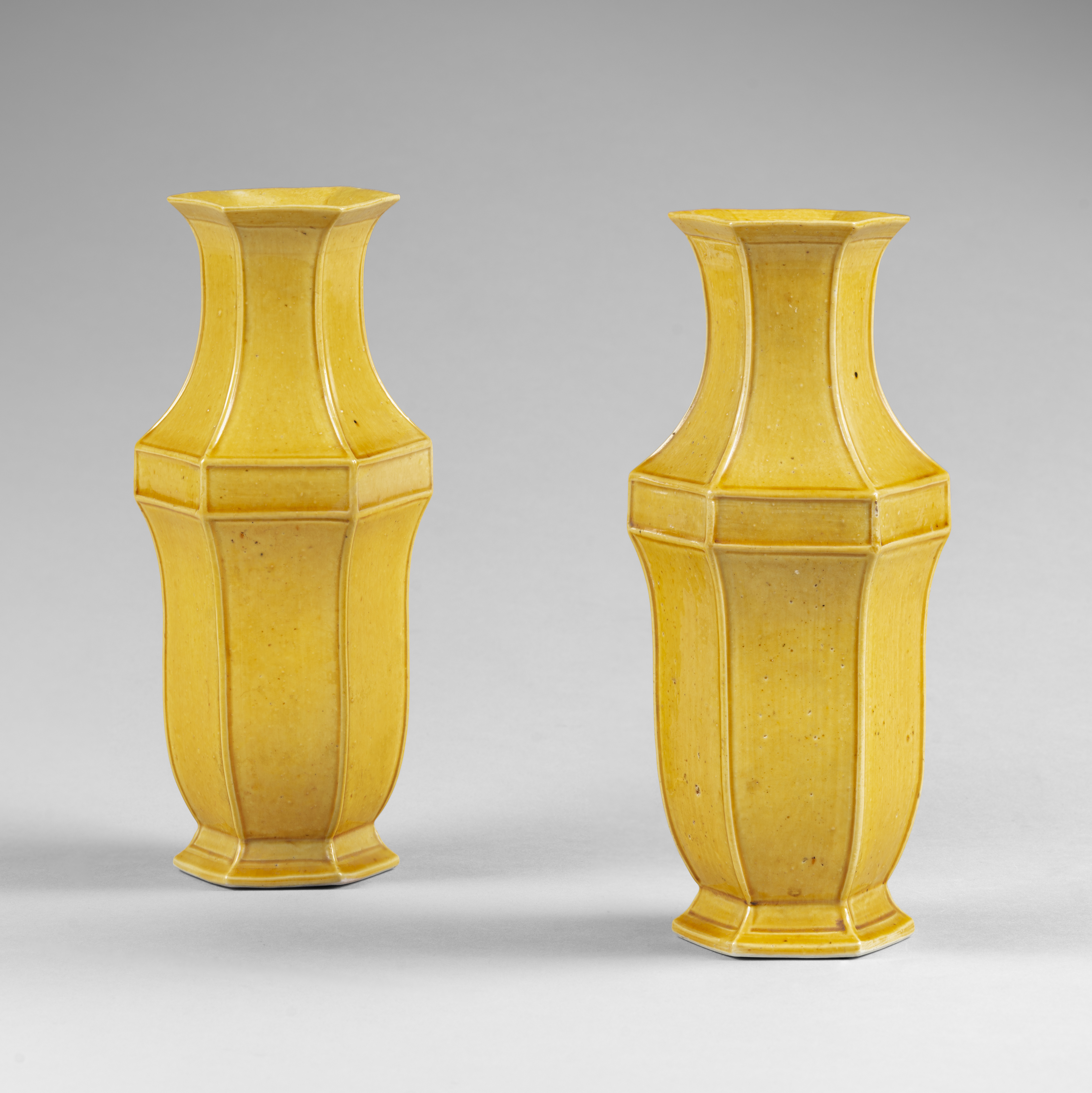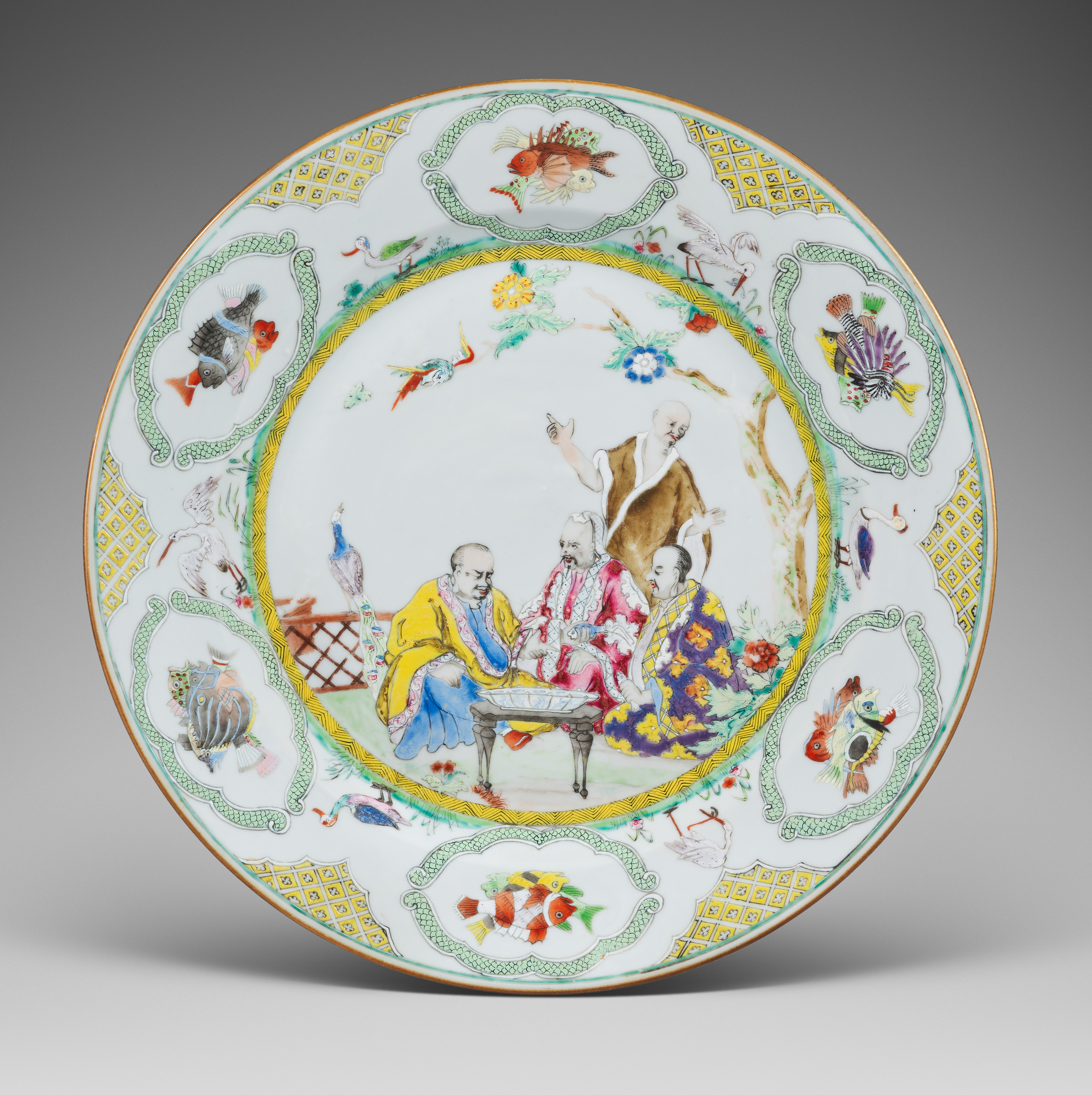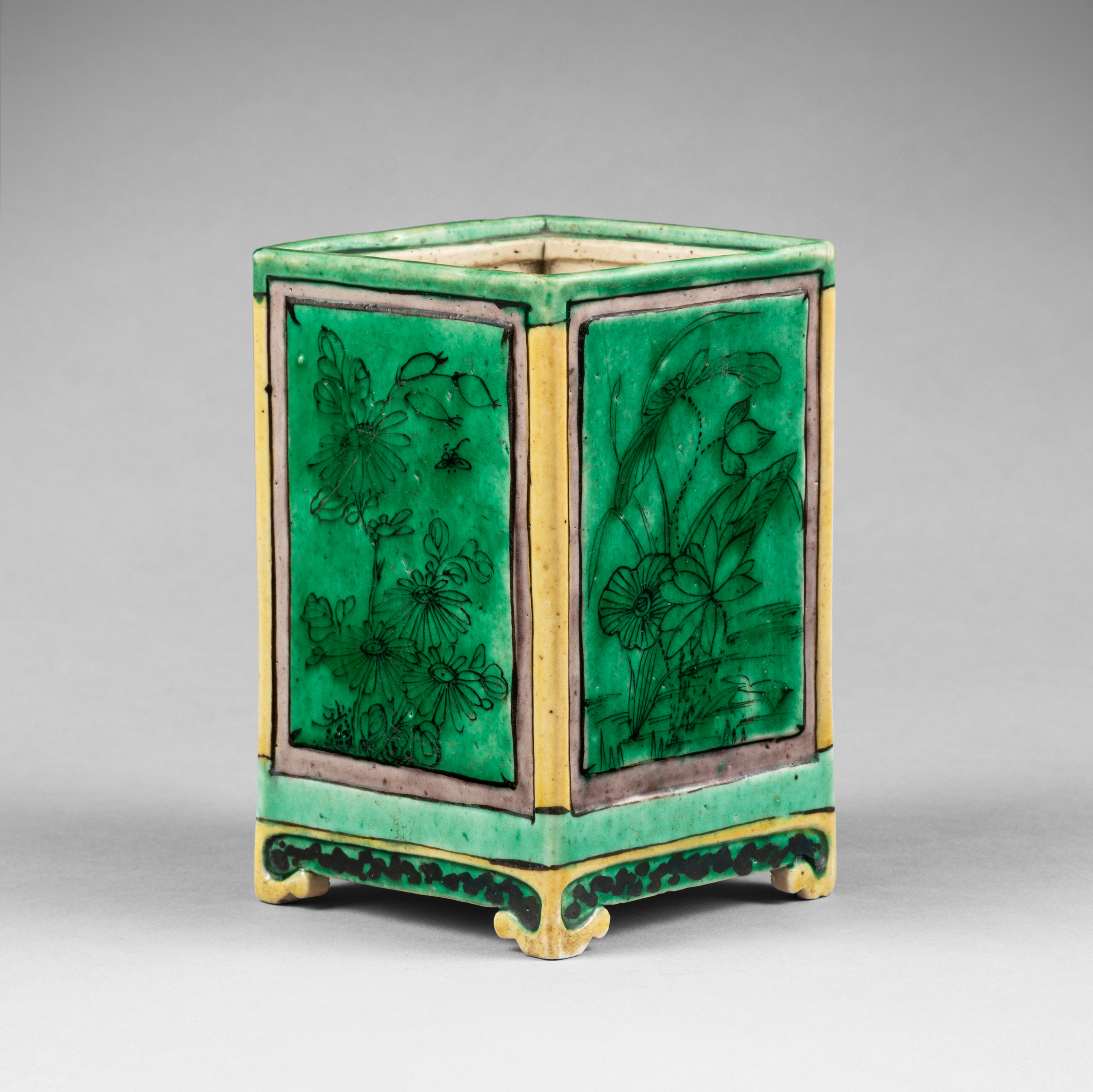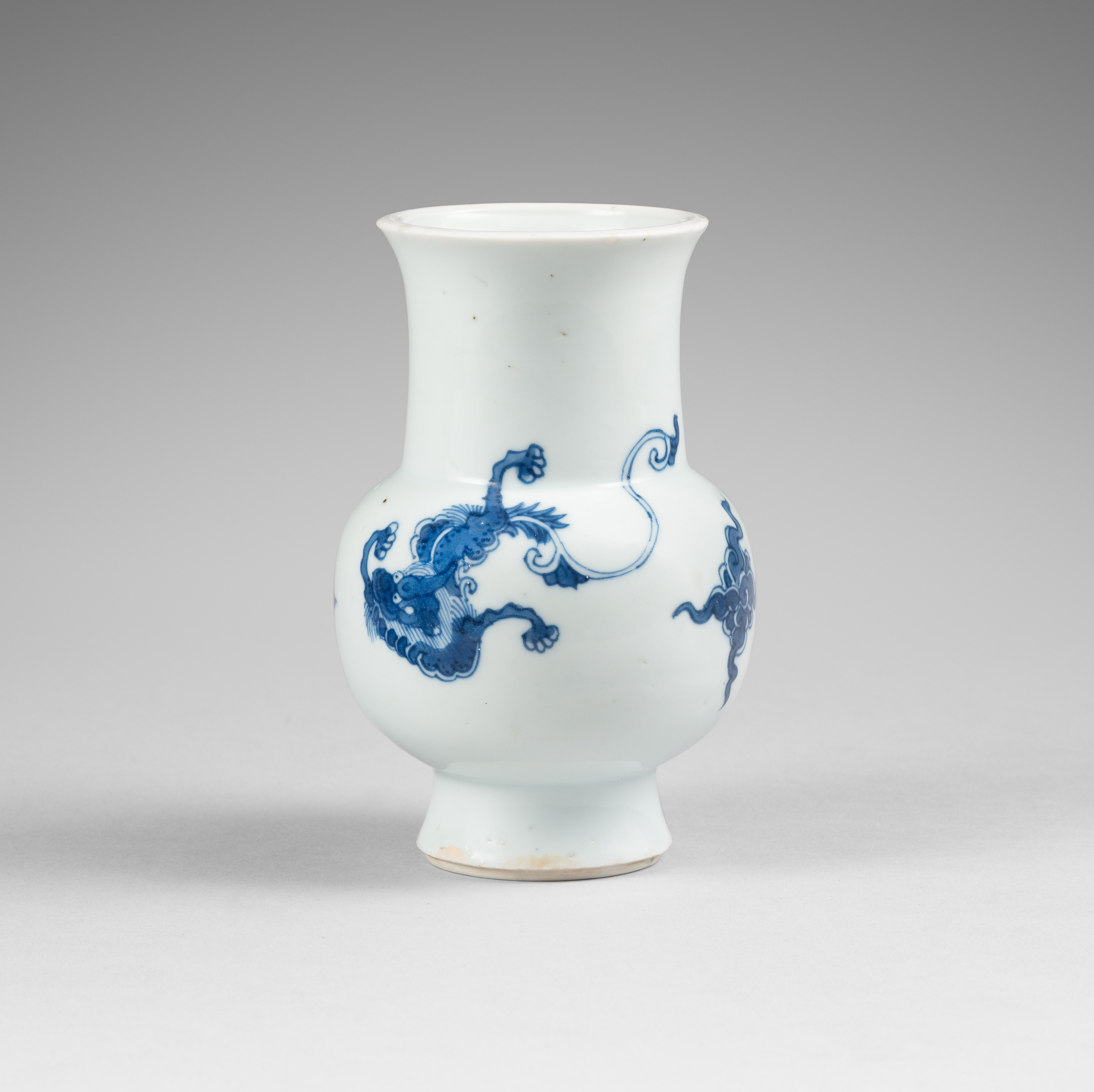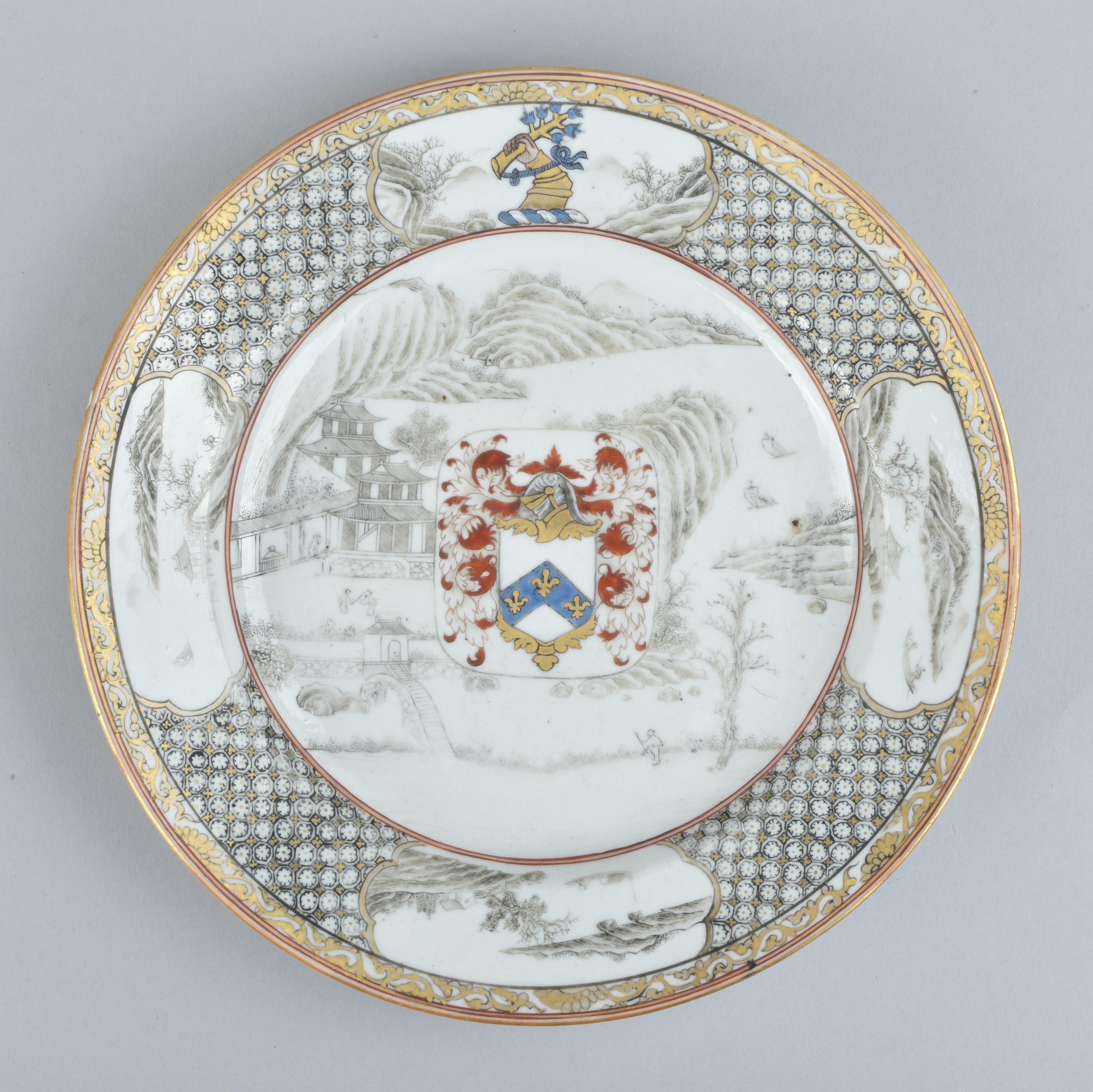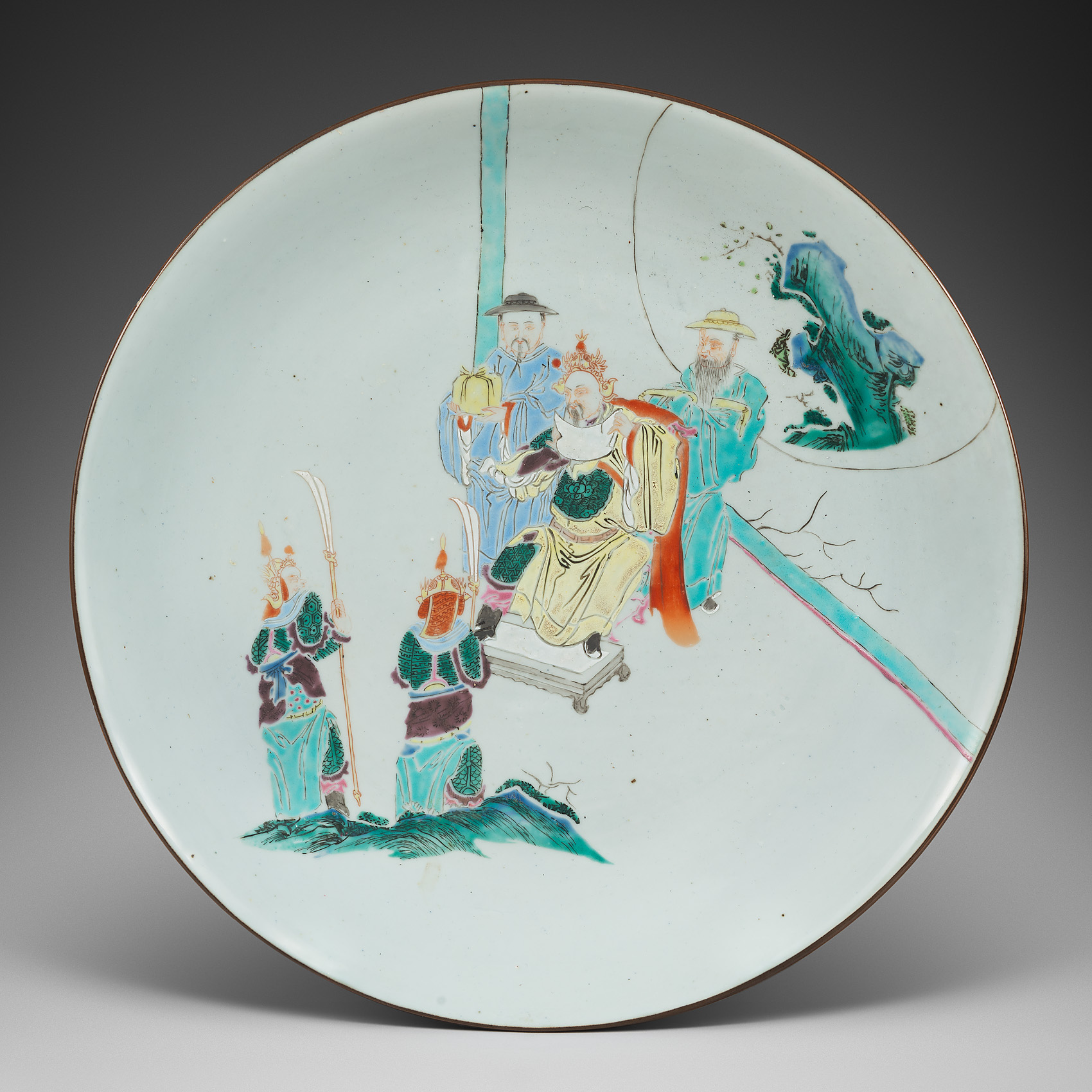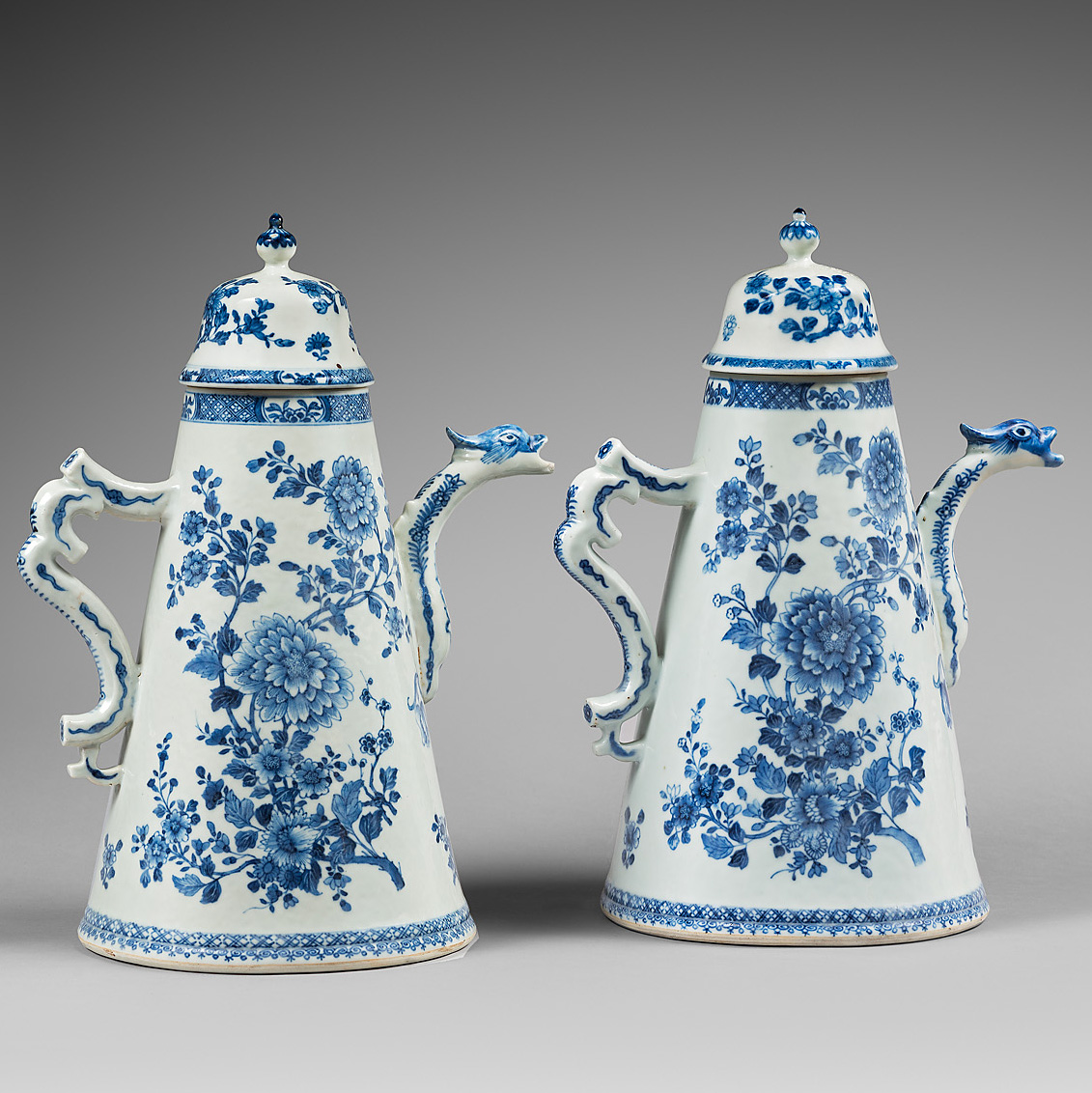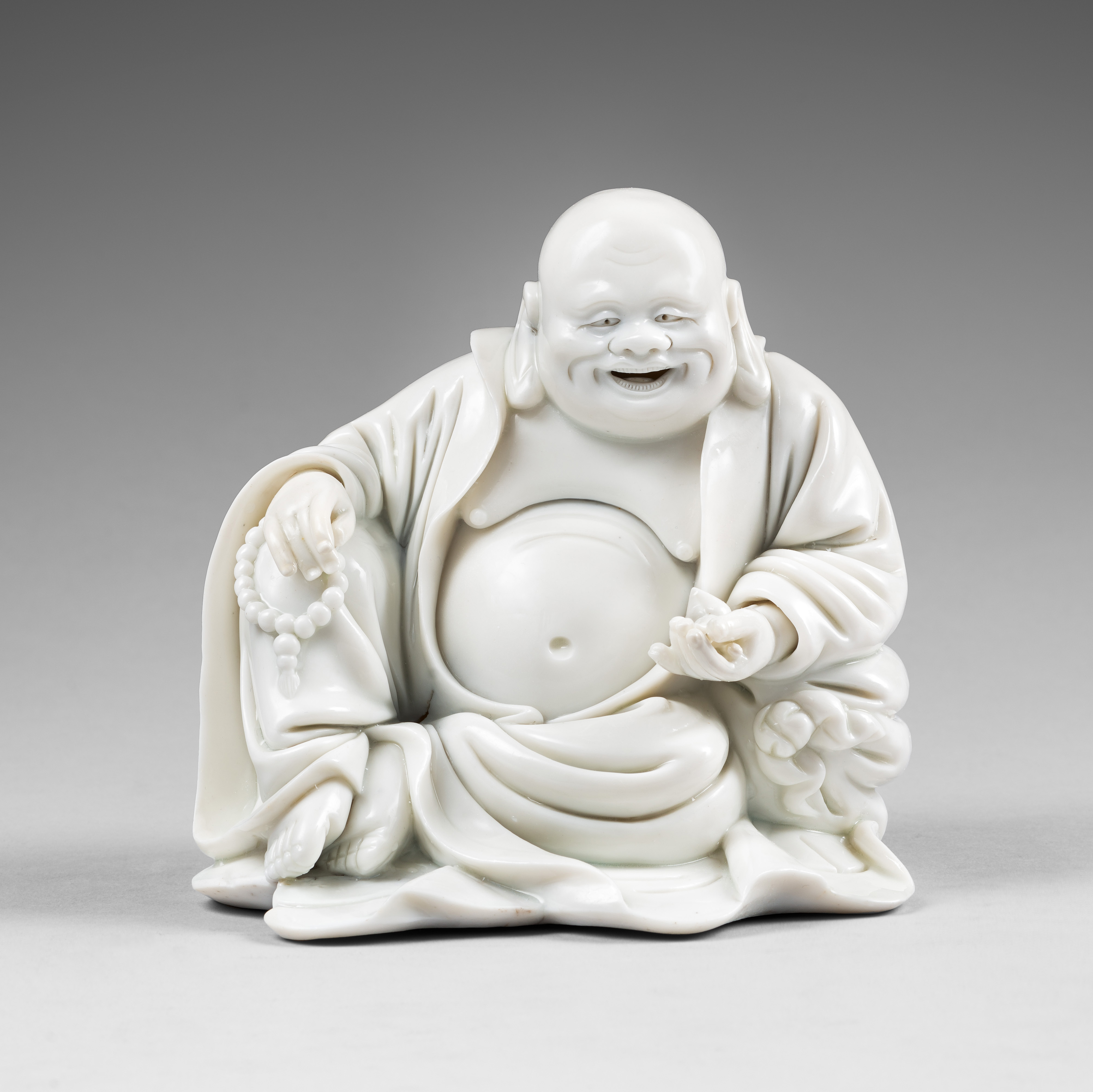
A blanc-de-Chine figure of Budai. Qing dynasty
The rotund figure is seated in rajalilaasana, the posture of royal ease, with a cheerful expression and wearing robes that cover the shoulders and legs, leaving the chest and round belly bare. He wears a string of prayer beads.
- Country:
- China (Dehua)
- Period :
- Qing dynasty (1644-1911)
- Material:
- Porcelain
- Dimension:
- 6.29 in. (16 cm)
- Reference :
- D699b
- Status:
- sold
Notice
Budai is a Chinese deity. His name means “Cloth Sack”, and comes from the bag he carries. According to Chinese tradition, Budai was an eccentric Chinese Zen monk who lived during the 10th century. He is almost always shown smiling or laughing, hence his nickname in Chinese, the Laughing Buddha. In English speaking countries, he is known also as the “fat Buddha”. Chinese porcelain figures such as the present example would have been used in a family shrine offering prayers in China, but in the West they would be seen as exotic curiosities, sometime referred to as “Magot” or “Pagod”.
Photography : Jérémie Beylard / Agence PHAR


